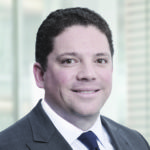By Darren Coleman
Special to the Financial Independence Hub
If you want to practice law you must graduate from law school. If you want to be a doctor you need a degree in medicine. But what if you want to be a financial advisor who counsels people on how to handle their money and their investments? Until now, pretty well anyone could hang a shingle, but thankfully, those times appear to be changing which is good for the consumer/investor.
The recent 2019 Ontario Budget had a proposal to formally regulate the terms ‘financial adviser’ and ‘financial planner.’
What’s the difference? The adviser helps clients manage their investments, but the planner is a bit different. A financial planner helps you identify and meet your goals. That may be paying for your child’s post-secondary education, paying off your mortgage, or just getting everything in place so you can retire comfortably.
While one needs a professional license to offer advice on the purchase or sale of a stock, insurance policy, or mutual fund, until now pretty well anyone could claim to be a financial planner or wealth management adviser who dishes out general advice for the masses.
Forensic financial planning
But bad or erroneous financial advice from one who isn’t properly qualified can be disastrous for the client/investor, and I have seen it happen all too often. Those of us in the industry call this ‘forensic financial planning’ and the key word there is forensic.
What exactly am I talking about? It might be putting too much weight into something like whole life insurance or high-risk securities. It might be not taking a prudent look at leverage in your investments. Or buying expensive mutual funds that don’t pan out.
This new demand for professional designations in the industry is most welcome and long overdue. It will reduce the chances of investors becoming victims to incompetent advisers and to those who deal in outright fraud.
The Financial Professionals Title Protection Act, 2019 says that any persons who call themselves a Financial Planner or Financial Advisor must have the proper credentials from an approved body. While this won’t eliminate incompetence, it’s certainly a step in the right direction.
MNP, a leading consulting firm for accounting, tax and business, says 46% of Canadians today are within $200 of financial insolvency. Almost half! It doesn’t take much of an imagination to see how one bad move or bad bit of advice from someone who portrays to be a financial consultant can do great damage.
Consider that five years from now 20% of Canadians will be over age 65 and far too many of them will not have their financial house in order. In 2016 not even one in four tax filers – the actual figure was 23% – made an RRSP contribution! As for TFSAs, people tend to use them as much for short-term savings as they do for long-term.
The difference between a comfortable or a bankrupt retirement
Put it altogether and it’s clear that many Canadians are not adequately prepared for the 20 and even 30 years in which they can expect to live in their retirement. Add to that the fact that the degree of financial illiteracy out there is way too high, which means that people rely on advisors to, well, advise them.
A good, competent and qualified financial planner or financial adviser can be the difference between a comfortable retirement and a bankrupt retirement. That person can be the difference between getting a child through university and coming out of it unscathed, or losing your shirt in the process. They can be the difference between waking up in the morning with optimism about the day ahead or waking up full scared and full of dread.
We in the industry have been lobbying for this improved world of professional designations for years. This time the government got it right and good on them.
 Darren Coleman is an advisor with Raymond James in Toronto. His professional accreditations include Canadian Investment Manager, Financial Management Advisor, and Fellow of the Canadian Securities Institute with a Level II Life Insurance License. Darren was one of the first Canadian professionals to attain the designations of Professional Financial Planner, Certified Financial Planner, and Certified Hedge Fund Specialist.
Darren Coleman is an advisor with Raymond James in Toronto. His professional accreditations include Canadian Investment Manager, Financial Management Advisor, and Fellow of the Canadian Securities Institute with a Level II Life Insurance License. Darren was one of the first Canadian professionals to attain the designations of Professional Financial Planner, Certified Financial Planner, and Certified Hedge Fund Specialist.


